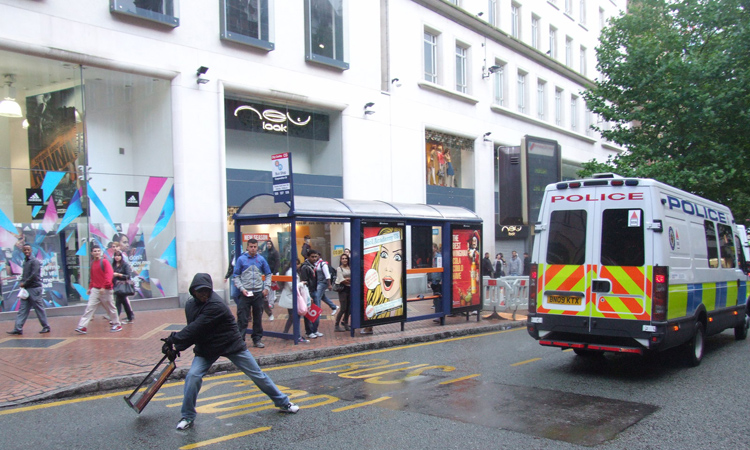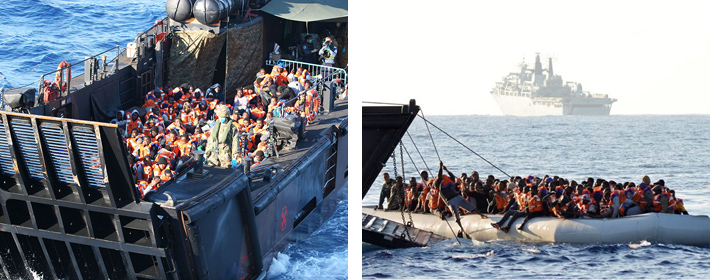INDIAN ARMED FORCES CHIEFS ON OUR RELENTLESS AND FOCUSED PUBLISHING EFFORTS

The insightful articles, inspiring narrations and analytical perspectives presented by the Editorial Team, establish an alluring connect with the reader. My compliments and best wishes to SP Guide Publications.

"Over the past 60 years, the growth of SP Guide Publications has mirrored the rising stature of Indian Navy. Its well-researched and informative magazines on Defence and Aerospace sector have served to shape an educated opinion of our military personnel, policy makers and the public alike. I wish SP's Publication team continued success, fair winds and following seas in all future endeavour!"

Since, its inception in 1964, SP Guide Publications has consistently demonstrated commitment to high-quality journalism in the aerospace and defence sectors, earning a well-deserved reputation as Asia's largest media house in this domain. I wish SP Guide Publications continued success in its pursuit of excellence.
- MoD initiates comprehensive review of Defence Acquisition Procedure 2020, pushes for defence reforms
- G7: The Swansong
- Kalinga Connect: South Asia to Polynesia
- Must Credit DRDO for Operation Sindoor, now what is next for defence R&D?
- The layered Air Defence systems that worked superbly, the key element of Operation Sindoor
- Operation Sindoor | Day 2 DGMOs Briefing
- Operation Sindoor: Resolute yet Restrained
Making Sense of the Riots in Britain
Anger on the streets has been piling up for a variety of reasons, including the failure of authorities to address the vulnerability of the local white population to migrants' crime
 |
The Author is former Chief of Staff of a frontline Corps in the North East and a former helicopter pilot. He earlier headed the China & neighbourhood desk at the Defence Intelligence Agency. He retired in July 2020 and held the appointment of Addl DG Information Systems at Army HQ. |

The expression "stiff upper lip" refers to the emotionally stunted way in which Brits suppress their true upset, anger or hurt in times of crisis. No more. The stiff upper lip has begun to quiver. The common Brit is out on the street, shouting, gesturing, pelting bricks and furniture, over-turning police cars and setting properties ablaze. Poorly managed mass migration has left British post-industrial communities ravaged by fragmentation, competition for housing, wage suppression and grooming gangs.
Poorly managed mass migration has left British post-industrial communities ravaged by fragmentation, competition for housing, wage suppression, and grooming gangs
Since the upheaval swirls around migrants, it is important to examine underlying causes. While some factors were beyond the control of governments in power, others were deliberate policy frameworks that encouraged immigrants. Vote bank and appeasement politics may have had a major role in arriving at the current chaos. If that be so, lessons must be learnt.
Migration Politics
The conservatives were in power for the past fourteen years since May 2010, last led by Rishi Sunak. Before that, from 1997-2010, the Labour ruled Britain, first under Tony Blair for ten years and then Gordon Brown. It is widely accepted that there was a deliberate but undeclared policy under the Labour governments of loosening immigration controls in almost every sector. These policies accounted for two thirds of the 3.6 million net foreign migration under Labour. The other third was due to their decision not to impose transition controls on migrants from the new East European members of the EU, the only aspect of their record on immigration for which they have apologised. That half-truth, unfortunately, became the focus of Conservatives under Boris Johnson leading to Brexit in 2019.
It is widely accepted that there was a deliberate but undeclared policy under the Labour governments of loosening immigration controls in almost every sector
If Britain thought leaving the EU would solve its worries about migration, it was wrong. The rapid spike in people trying to cross the English Channel in small boats has triggered a new sense of crisis and left UK governments grappling with a shortage of emergency accommodation, a clogged asylum and return system, and spiralling costs to the taxpayer. Arrivals across the Channel are steadily increasing, from 8,400 in 2020 to 30,000 in 2023. It has already crossed 15,000 till July this year.

(Right): People are rescued from an inflatable boat by the Royal Navy in the Mediterranean
The Labour government of the first decade justified encouraging migration by citing economic benefits through higher productivity. Mostly hidden was the effect of a large supply of cheap labour in holding down wages which was, of course, welcome to the powerful business lobby. But underlying these overt economic considerations was a murkier political motive.
If Britain thought leaving the EU would solve its worries about migration, it was wrong. The rapid spike in people trying to cross the English Channel in small boats has triggered a new sense of crisis.
Migrants from Asia and Africa are significantly more inclined to vote Labour than to vote Conservative or Liberal Democrat. There are 20 constituencies in the UK that have an electorate comprised of more than 30 per cent Muslims. All of them elected a Labour MP in 2019. Labour got roughly 86 per cent of the Muslim votes in that election. A record 26 Muslims were elected in the June 4, 2024 elections as against 19 in 2019, ridding on pro-Gaza sentiments. For years, Labour has indulged in Muslim religious identity politics based on both domestic and foreign-policy grievances based on Palestine and Kashmir.
In April 2022, under Conservative Prime Minister Boris Johnson, the UK sealed a £120-million deal with Rwanda to offshore asylum seekers to the Eastern African country. No removal flight has even left the runway amid a flurry of challenges in the courts delaying the process. The incoming Labour government promptly nullified the deal on assuming office.
Grooming Gangs Scandal
Anger on the streets has been piling up for a variety of reasons. A damning report in January 2024 has said Greater Manchester Police and Rochdale Council failed to properly investigate reports of grooming gangs' abuse in Rochdale between 2004 to 2013 despite warnings from whistle-blowers. 97 per cent of the abuse victims were white under-age girls while over 50 per cent of the abusers were of Pakistani descent. The inability of and obfuscation by the authorities on the scale of abuse, identity of perpetrators and the vulnerability of the local white population to migrants' crime had riled the public. In February 2024, a victim of a Rochdale grooming gang has said she was raped more than 100 times from the age of 12 and felt "let down" by police.
The mishandling of the grooming gangs' episode had made the local white population lose trust in the efficiency and impartiality of the police
While the Conservative party expectedly lost the elections owing to austerity, Brexit and mishandling of the COVID pandemic (Boris Johnson's party gate scandal), the new Labour government faces the consequences of its long record of being a pro-migrant party. The mishandling of the grooming gangs' episode had made the local white population lose trust in the efficiency and impartiality of the police. The pro-Palestine protests across cities since October last year and the silence and helplessness of the Metropolitan Police under London Mayor Sadiq Khan added fuel to the fire.
Continuing their policy of opacity and dithering while dealing with migrant-fuelled violence and arson, it didn't help matters that the police failed to disclose upfront the identity of the youth who brutally stabbed and killed three young girls while injuring eight others in Southport. False claims on social media suggested the perpetrator, Rudakubana was a Muslim immigrant, which incited anger among far-right supporters.
Consequences and Challenges
It didn't help matters that Prime Minister Keir Starmer, speaking first time after the horrific incident, called out the protesters as far-right thugs and assured very firm handling by the police. The contrast with the near-silence of the ruling dispensation on the vile conduct of the butcher son of a Rwandan migrant family couldn't have been starker. The long-simmering anti-migrants' sentiments were stoked and masked anti-migrant demonstrators attacked a hotel housing asylum seekers in Rotherham. Skirmishes also broke out at anti-migrant rallies in Liverpool, Manchester, and Bristol. Rioters clashed with police, threw bricks and bottles, and looted shops. Even Belfast, in Northern Ireland, has erupted.
Samuel Huntington in a 1993 Foreign Affairs article argued that, in the context of the end of the Cold War, conflicts increasingly would be due to clashes between civilizations rather than to ideology or economic interests. Huntington conceived of civilizations as the highest level of cultural grouping, identified by features such as language, history, or religion. Non-assimilation of migrants into the largely Christian White European societies that have long seen exceptional prosperity but lately fallen to stagflation and economic hardship may be witnessing glimpses of what Huntington was referring to.





